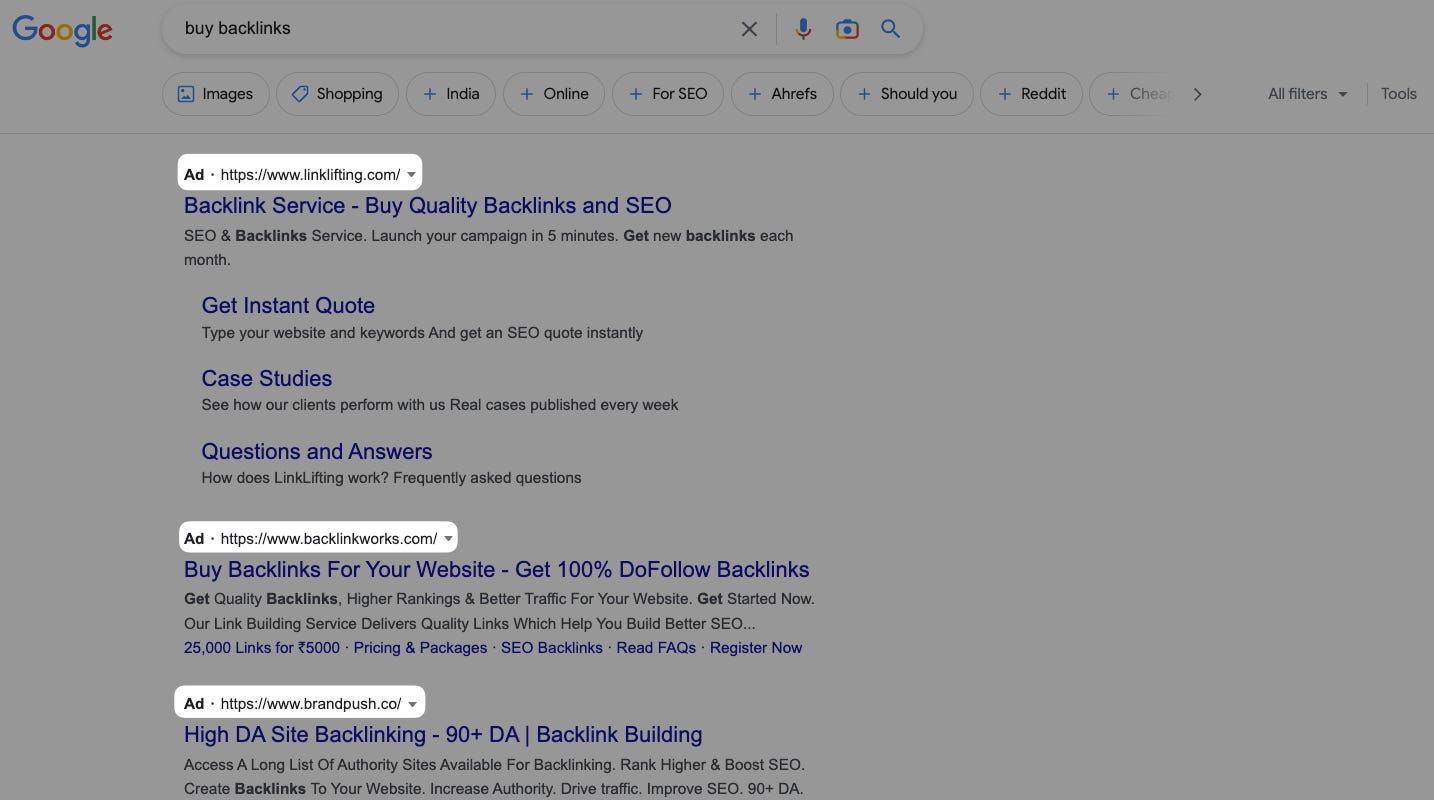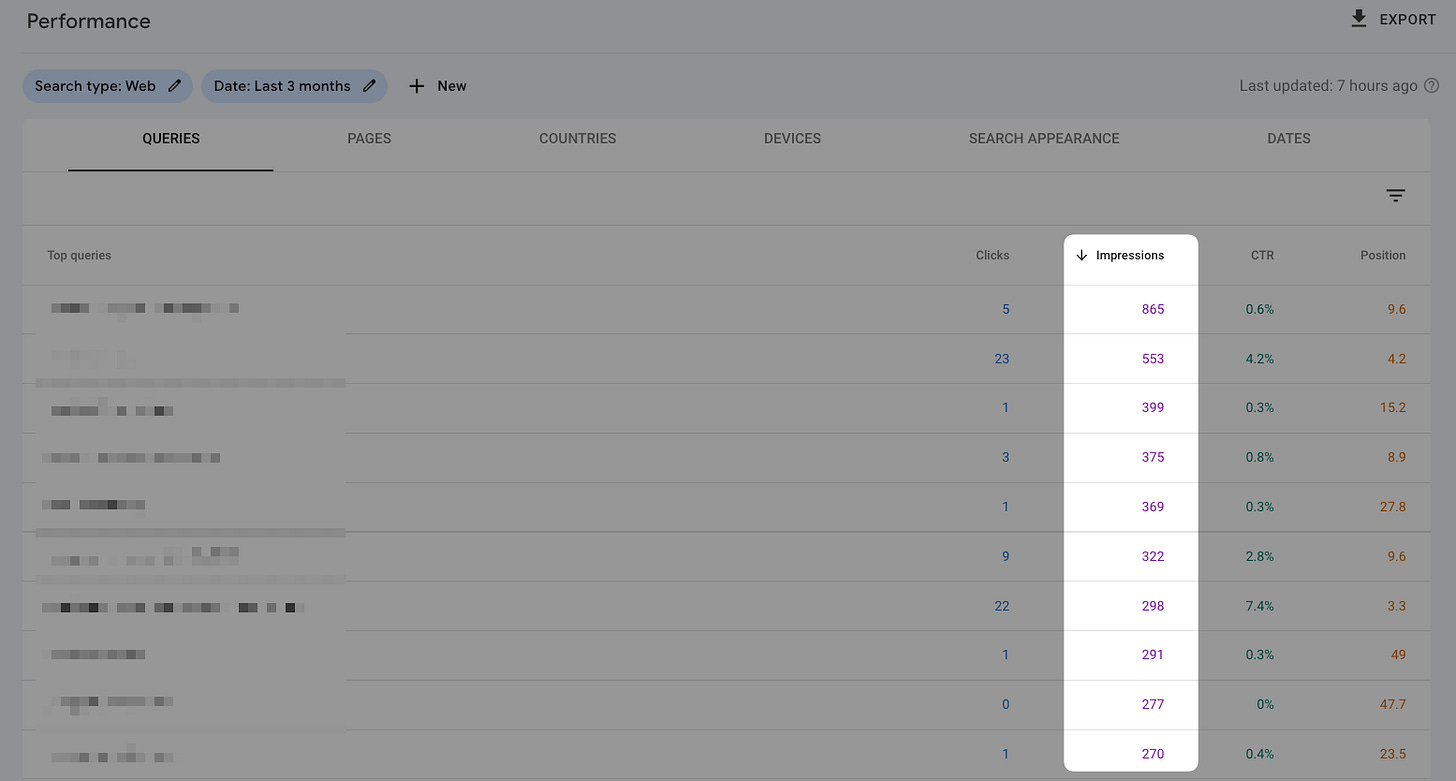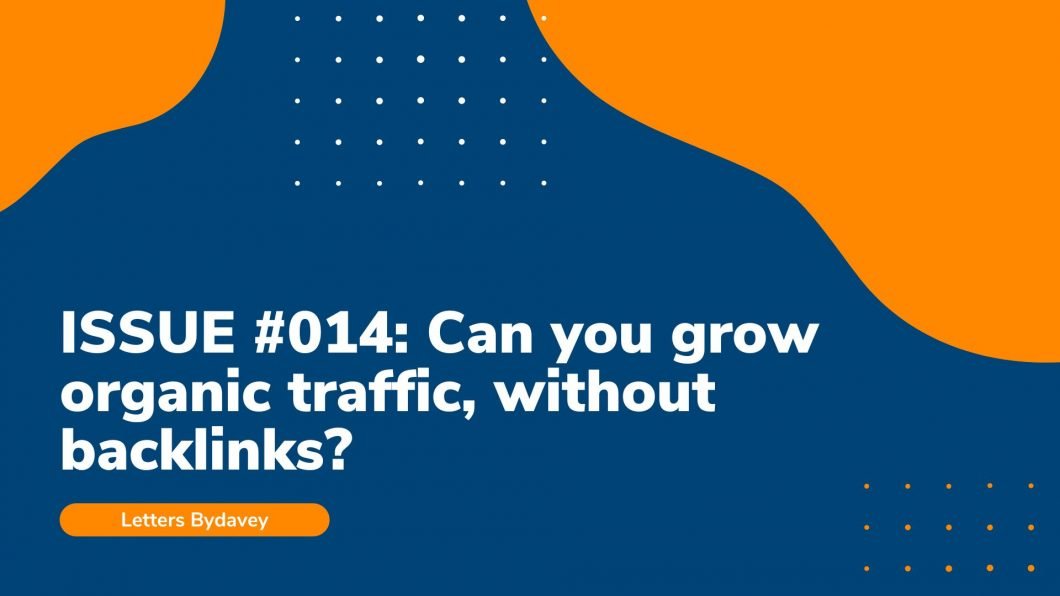(Hint: There’s more to search than backlinks)
Reading time: 4 minutes
TL;DR & Summary
Backlinks are the most misunderstood topic, for anyone who wants to grow organic traffic.
Almost everybody treats backlinks as currency, the more the better. Which is where they’re wrong.
Misconceptions that float on the web are at fault. Most of the time, building links is what becomes the sole aim of SEO.
If you see backlinks as a source of authority, you’ll get natural links even though you spend less time building them.
Google has gone on record to claim that backlinks will lose the importance it has today. If you too rely on backlinks, you should reconsider your strategy.
Here are 3 simple steps to get organic traffic without relying on backlinks
- Understand how search works to know the significance of backlinks
- Focus on On-Page SEO
- Create link-worthy content to build natural links
Everybody wants a piece of the pie or organic traffic from search. But a study from Ahrefs found that 91% of sites don’t get any traffic from Google. The problem is the fundamentals that are wrong.
If you keep pursuing backlinks for higher ranking, you’ll waste time & energy. Google discourages any form of unnatural link-building. This puts most sites on their penalty radar.
Too much reliance on backlinks to rank higher will put you in a tough spot. Recently, Google’s John Muller on record said that Backlinks will lose the significance it has right now.
The algorithm will treat backlinks as the mode of discoverability and not trust. This change will be here faster than you can imagine.
There are already several creators who have ranked higher without backlinks.
Algorithms are improving at finding context & relevance of your pages for search queries. It already doesn’t need to rely on backlink profiles to determine the trust factor.
This was bound to happen. The whole concept of backlinks is polluted. So much so, that for a keyword with a search volume of 3000/mo, there are 3 ads competing.

Why backlinks are no more important?
It’s not that backlinks will die, nobody will link to any pages. But the way many use backlinks will change. Here’s why:
- It’s easier than ever to buy backlinks. Google is a trillion-dollar company. One can’t fool the company by buying backlinks worth a few dollars.
- There are very few authoritative sites & its very hard to get backlinks from that site
- Almost everyone has misunderstood backlinks, Google knows this.
- Backlinks are a source of reference, it’s a tradable commodity nowadays.
But there’s a workaround. If you’re building links at present, you can still turn your ships around.
If not backlinks, what else should you use to improve ranking & hence the traffic? I’ve defined 3 steps for you, let’s take a look at them.
Step 1: Understand How Search Works
The reason why you should know how search works are because it will help you define a strategy & plan every move. When you know how search works, you’ll know how much less reliant backlinks are.
There are 3 major components of a search engine. Crawler (Web spider), Index (Database) & Algorithm.
Web spider crawls the web, finds new pages & the index saves cached copies of those pages.
When a user searches, the algorithm will fetch from the index & ranks it based on several factors.
That’s it. That’s a bird’s eye view of how search work.
The only role of backlinks right now is to help the web spider discover new pages.
But backlinks profiles will always help people understand the trust in the content.
However, backlinks won’t be the only source of trust. It still isn’t.
Step 2: Focus on On-Page SEO
On-Page SEO is the heart of SEO & will evolve to be the only controllable SEO factor.
As part of On-Page SEO, I have a very simple strategy.
Create a very strong internal link profile & optimize content for topics, not keywords.
These two strategies will take care of almost every aspect of on-page SEO.
When it comes to internal links, I have a simple rule.
Every page should link to a page targeting a broader keyword and a narrower keyword of the same topic. Simple!
This creates a dense network of pages that cover a wide cluster of topics for broader & narrower needs.
At the time of creating pages, I target topics and not keywords. I never (& recommend the same) research keywords before writing.
I publish it & let it index. Next, I check the impressions in the search console & optimize for those keywords.
I repeat the process every few months for top-performing pages. That’s it.

Step 3: Create Link Worthy Content
Pick any top-ranking page. You’ll notice links to useful articles that act as extensions to the point the post is making.
If you’ve published something recently notice what you link to. Look very closely.
You must’ve linked to a page that extends the point you’re trying to make, something you agree with.
This is what you should keep in mind while creating content for your blog.
When you create something that’s link-worthy, you don’t have to worry about building links.
Like you linked to other pages, others will link to your pages naturally.
Study Materials
- How to build natural links from HARO
- A healthy discussion on the significance of Backlinks
- John Muller’s statement on what gets indexed
- Google’s official documentation on How Search Works?
If you’re looking forward to winning online, here’s how I can help:
- Sit with you 1-on-1 & create a content marketing strategy for your startup. Hire me for paid consulting.
- Write blogs, social posts, and emails for you. Get in touch here with queries. (Please mention you found this email in the newsletter to get noticed quickly)
- Join my tribe on Twitter where I share SEO tips (every single day) & teaser of the next issue of Letters ByDavey.

